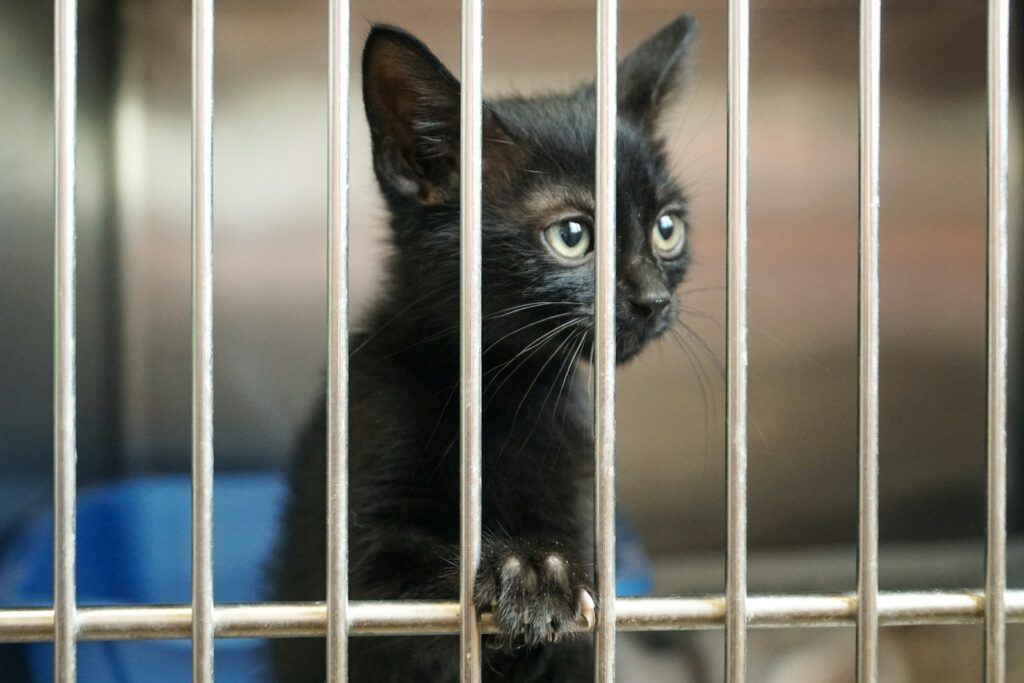Research indicates that millions of cats end up in shelters or rescue organizations each year, with varying circumstances leading to their abandonment or displacement.
According to the American Society for the Prevention of Cruelty to Animals (ASPCA), approximately 3.2 million cats enter U.S. animal shelters annually, highlighting the widespread need for adoption and support for these animals.
Overview
What exactly defines a rescue cat, and why should you consider adopting one?
Have you ever wondered what makes a rescue cat special? With millions of cats worldwide awaiting adoption, the concept of rescue cats has become increasingly prevalent.
Cat Rescue Meaning
Cat rescue refers to the process of saving cats from homelessness, abuse, neglect, or euthanasia by placing them in loving homes through adoption or fostering.
Rescue organizations and shelters play a crucial role in this attempt, providing temporary shelter, medical care, and socialization to cats in need.
Related: Volunteering with Animals
These organizations often rely on dedicated volunteers and donations to sustain their operations and continue their mission of rescuing and rehoming cats. By adopting a rescue cat, you not only provide a loving home for a deserving animal but also contribute to the ongoing efforts to reduce pet overpopulation and alleviate the burden on shelters.
What Are Rescue Cats Like?

Rescue cats come from diverse backgrounds and experiences, ranging from strays found on the streets to surrendered pets. As a result, their personalities, temperaments, and behaviors can vary widely.
While some rescue cats may be initially shy or cautious due to past trauma or lack of socialization, many others are affectionate, resilient, and grateful for a second chance at life.
It’s essential to approach each rescued cat as an individual and give them the time and patience they need to adjust to their new environment. With love, patience, and proper care, rescue cats often thrive and form deep bonds with their adoptive families.
Related: Bringing Home a New Cat? Here’s Everything You Need! [2024]
Why Get A Rescue Cat?

Adopting a rescue cat is an enriching experience for both the cat and the adopter. By choosing to adopt, you will save a life and gain a loyal and loving companion.
Additionally, adopting a rescue cat helps combat pet overpopulation and reduces the demand for breeding and purchasing animals from irresponsible sources. It’s a compassionate choice that positively impacts the lives of animals in need and promotes ethical pet ownership.
Do You Have To Pay To Get A Rescue Cat?

While some rescue organizations may charge adoption fees to cover the costs of veterinary care, spaying/neutering, and other expenses, many others offer adoption events or promotions with reduced or waived fees.
Adoption fees, when applicable, typically vary depending on factors such as the cat’s age, health status, and the organization’s policies.
It’s important to consider the long-term costs of cat ownership beyond the initial adoption fee, including food, litter, grooming, and veterinary care.
How Do I Give My Cat To A Rescue?

If you find yourself unable to care for your cat due to personal circumstances or other reasons, surrendering them to a reputable rescue organization or shelter is a responsible option.
Research local rescue groups or shelters in your area and inquire about their intake process and policies for surrendering animals.
Before surrendering your cat, consider exploring alternative solutions such as rehoming with friends or family, or seeking assistance from rescue organizations that offer resources for pet owners in need.
Do Rescue Cats Know You Rescue Them?

Yes, rescue cats are capable of showing emotions like gratitude. Rescue cats may not understand being “rescued” in human terms, but many experts believe they can sense and appreciate the difference between past hardships and their new loving homes.
While they may not show gratitude like humans, they often display trust, affection, and attachment to their adopters. Despite this, the love and care adopted families provide undoubtedly improve their lives, regardless of their understanding.
Conclusion
In conclusion, rescue cats offer a unique blend of resilience, gratitude, and unconditional love that enriches the lives of their adoptive families.
By understanding the meaning of cat rescue, appreciating the diverse personalities of rescue cats, and recognizing the benefits of adoption, individuals can make informed decisions that positively impact both their lives and the lives of animals in need.
Whether you’re considering adding a new feline friend to your family or simply curious about the world of rescue cats, I invite you to explore the possibilities and discover the joy of welcoming a rescue cat into your heart and home.
Frequently Asked Questions
Are rescue cats suitable for families with children?
Yes, many rescue cats are well-suited for families with children, especially if they have been properly socialized and acclimated to household environments. However, it’s essential to consider each cat’s individual temperament and compatibility with children, as well as educate children on proper pet care and interaction.
What should I expect during the adoption process?
The adoption process typically involves filling out an application, meeting with adoption counselors or foster caregivers, and completing a screening process to ensure compatibility and suitability for both the adopter and the cat. Some organizations may also require home visits or reference checks as part of the adoption process.
Find Adoptable Cats in Your Area.
How can I support cat rescue efforts if I’m unable to adopt?
There are many ways to support cat rescue efforts, even if you’re unable to adopt. You can volunteer your time at local shelters or rescue organizations, donate supplies or monetary contributions, foster cats in need of temporary homes, or advocate for spaying/neutering and responsible pet ownership within your community. Every contribution, big or small, makes a meaningful difference in the lives of rescue cats.

Leave a Reply